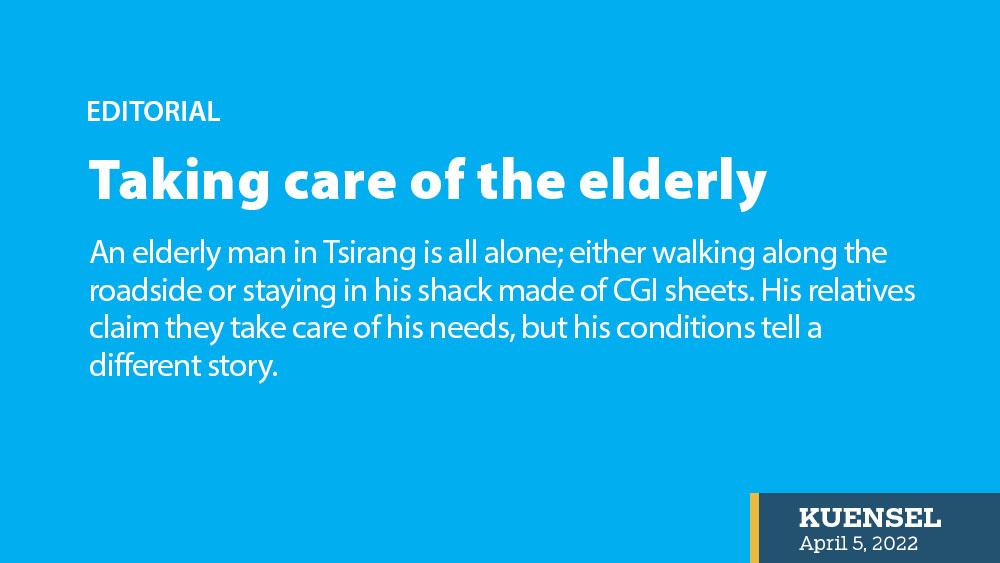An elderly man in Tsirang is all alone; either walking along the roadside or staying in his shack made of CGI sheets. His relatives claim they take care of his needs, but his conditions tell a different story.
In Paro, a disabled elderly woman is struggling to make ends meet. The woman, in her 70s, survives on handouts. Her brother also loiters around, looking for food.
These are the conditions of many of our elderly citizens. We have seen many living near the monasteries and along the streets. Only a few stories gets the media’s attention. Many go unnoticed.
Our elderly population are also suffering from mental health issues and non-communicable diseases.
It is sad that our ageing population do not receive the due care, attention and support even after five decades of declaring that wellbeing should be considered more important than material growth. We emphasised Gross National Happiness as a means to measure a country’s growth decades ago.
In a small country with close-knit families, elderly people lived with their children. They were respected. Our social and cultural practices mandate us to take care of our parents. Every family is expected to shoulder the responsibility of taking care of the ageing family members.
However, things are changing. Not many children live with their parents. With so-called development, individualism has set in. Children are too busy to take care of their parents.
The Constitution mandates the State to secure the integrity of an extended family system and community life, but when that is not happening, it is the elderly citizens who are struggling on their own.
We live in a welfare state where we take care of each other. We promote community vitality. Promoting positive ageing and bringing improvement to their lives is must.
While all of us are expected to shoulder the responsibility of taking care of our elderly family members, institutionalising elderly care is also necessary.
Many benefit from His Majesty The King’s kidu. Many are benefitted from the Goensho Tsamkhang. Civil society organisations like Tarayana Foundation and Royal Society for Senior Citizens are also assisting many individuals. There is also a monastic spiritual home in Punakha.
All the needy should, however, benefit from the services. All elderly people in rural or urban areas who are suffering should avail the services.
There also has to be social security provisions like old age pensions or tax rebate.
We cannot boast of promoting healthy ageing if our elderly citizens are suffering. There will be no compassion if we are not taking care of them. We should not preach GNH if we forget to practice them in the hurly burly of a modernised society.


